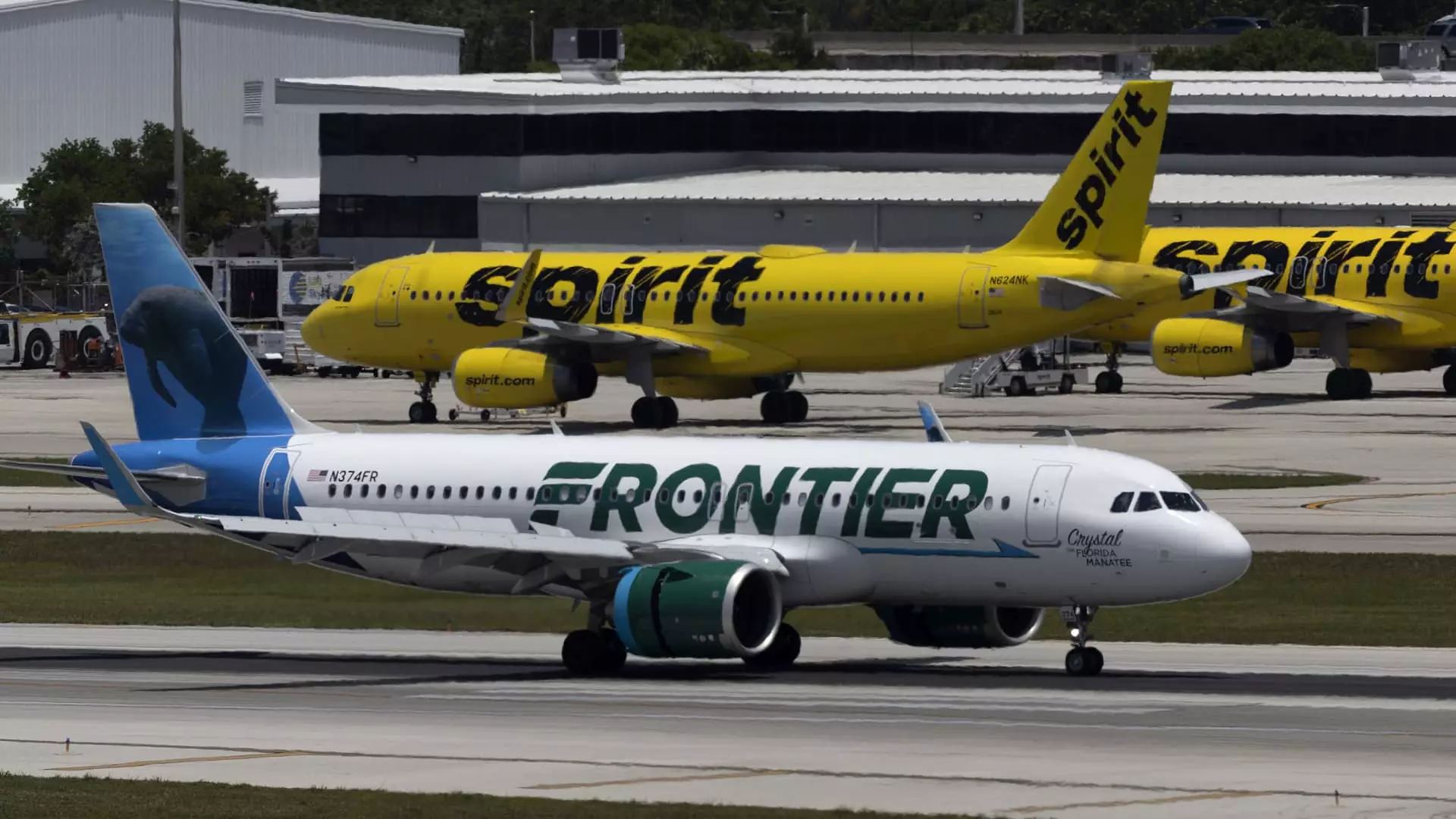In a surprising twist in the competitive airline industry, Frontier Airlines has announced a renewed proposal for a merger with Spirit Airlines, a rival currently navigating the challenging waters of bankruptcy. This move marks another chapter in a saga that began back in 2022 when the two airlines initially set their sights on joining forces. However, the ambitious plan faced significant hurdles when JetBlue Airways swooped in with an offer, leading to a tense legal battle that resulted in a federal judge blocking JetBlue’s acquisition of Spirit. Now, as Spirit seeks a path out of bankruptcy protection, Frontier believes that their merger can offer a more advantageous solution.
Frontier’s overtures to merge come after Spirit’s tumultuous journey, culminating in its bankruptcy filing in November. In a recent communication to Spirit’s leadership, Frontier executives expressed strong doubts regarding Spirit’s standalone plan for emerging from bankruptcy, indicating that it would leave the airline heavily indebted and struggling financially. The urgency is clear; Frontier Chairman Bill Franke and CEO Barry Biffle highlighted the necessity of a swift response to their proposal, signifying that the aviation market is not waiting for anyone.
However, Spirit’s management responded coolly to Frontier’s overtures, labeling the terms as “inadequate and unactionable.” This indicates a significant level of skepticism on Spirit’s part, suggesting that they may have a different vision for their restructuring and future operations. The rejection of Frontier’s merger proposal shines a light on the complexities of the airline market, particularly for budget carriers struggling to redefine their business models in the post-pandemic era.
The financial landscape for airlines like Frontier and Spirit has become increasingly tumultuous following the pandemic. Rising operational costs, particularly in salaries and aircraft maintenance, have placed considerable pressure on these budget airlines. The emphasis on low-cost travel has been eroded by consumer preferences leaping towards more spacious and comfortable travel options provided by competitors. Both airlines have made strides by eliminating cancellation fees and offering bundled packages to attract customers, yet more remains to be done.
Spirit is particularly handling a rough patch due to a Pratt & Whitney engine recall that has grounded a significant portion of its fleet. This operational setback has compounded its existing financial woes, making the quest for a viable recovery plan increasingly urgent. Budget airlines, traditionally marked by no-frills services, are finding it necessary to innovate and reconsider their strategies to thrive in a modern airline environment that demands a balance between affordability and enhanced consumer experience.
As Frontier continues to seek synergy through a potential merger, and Spirit grapples with its current restructuring plans, the future of both airlines remains uncertain. With Spirit indicating plans to exit bankruptcy soon, the timeline for resolving these discussions will be critical. Will Frontier’s renewed offer be sufficient to change Spirit’s course, or will they have to navigate these choppy waters alone? As the dynamics of the airline industry continue to shift, both airlines must remain agile and responsive in a highly competitive landscape. The outcome of these negotiations could redefine the operational strategies of budget carriers and influence consumer travel choices in the years to come.


Leave a Reply